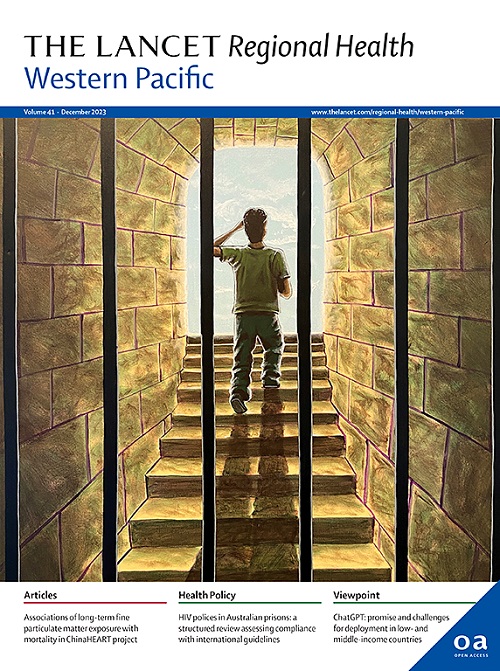消除种族歧视能在多大程度上减少土著居民和托雷斯海峡岛民儿童在心理健康和睡眠问题上的不平等?因果中介研究
IF 8.1
1区 医学
Q1 HEALTH CARE SCIENCES & SERVICES
引用次数: 0
摘要
背景种族主义是原住民和托雷斯海峡岛民儿童健康不平等的根本原因。我们估算了如果消除人际间的种族歧视,原住民和托雷斯海峡岛民儿童的心理健康和睡眠问题不平等现象可能会减少的程度。方法我们利用了 "大声反对种族主义"(SOAR;N = 2818)的横断面数据和 "澳大利亚儿童纵向研究"(LSAC;N = 8627)的纵向数据。SOAR于2017年完成,LSAC对2004年至2014年的幼儿园队列儿童和2008年至2018年的出生队列儿童进行了跟踪调查。接触:原住民和托雷斯海峡岛民身份(原住民和托雷斯海峡岛民/英裔欧洲人),结构性种族主义的替代测量(SOAR:10-15年;LSAC:4-5年);中介:人际种族歧视(是/否)(SOAR:10-15年;LSAC:12-13年);结果:心理健康问题(是/否)和睡眠问题(是/否)(SOAR:10-15年;LSAC:14-15年)。研究结果与英裔欧洲儿童相比,土著儿童和托雷斯海峡岛民儿童的心理健康问题发生率(SOAR:40.1%对13.5%;LSAC:25.3%对7.6%)和睡眠问题发生率(SOAR:28.5%对18.4%;LSAC:14.0%对9.9%)更高。假设采取干预措施消除原住民和托雷斯海峡岛民儿童遭受人际种族歧视的经历,可分别减少原住民和托雷斯海峡岛民儿童42.4%和48.5%的心理健康和睡眠不公平现象(相当于绝对减少11.2%和4.7%),以及25.6%和1.6%的心理健康和睡眠不公平现象(相当于绝对减少5.5%和0.1%)。在这两项研究中,剩余的绝对不平等在两项结果中都相似。解释有针对性的政策干预,消除对土著居民和托雷斯海峡岛民儿童的种族歧视,很有可能减少心理健康和睡眠问题方面的不平等。解决种族主义和种族歧视问题需要在土著居民和托雷斯海峡岛民社区的指导下采取多成分、多层次的方法。本文章由计算机程序翻译,如有差异,请以英文原文为准。
To what extent could eliminating racial discrimination reduce inequities in mental health and sleep problems among Aboriginal and Torres Strait Islander children? A causal mediation study
Background
Racism is a fundamental cause of health inequities for Aboriginal and Torres Strait Islander children. We estimated the potential reduction in inequities in Aboriginal and Torres Strait Islander children's mental health and sleep problems if interpersonal racial discrimination was eliminated.
Methods
We drew on cross-sectional data from the Speak Out Against Racism (SOAR; N = 2818) and longitudinal data from the Longitudinal Study of Australian Children (LSAC; N = 8627). The SOAR was completed in 2017 and the LSAC followed children from 2004 to 2014 in the kindergarten cohort and from 2008 to 2018 in the birth cohort. Exposure: Aboriginal and Torres Strait Islander status (Aboriginal and Torres Strait Islander/Anglo-European), a proxy measure of structural racism (SOAR: 10–15 years; LSAC: 4–5 years); Mediator: interpersonal racial discrimination (yes/no) (SOAR: 10–15 years; LSAC: 12–13 years); Outcomes: mental health problems (yes/no) and sleep problems (yes/no) (SOAR: 10–15 years; LSAC: 14–15 years). An interventional effects causal mediation approach was used.
Findings
Aboriginal and Torres Strait Islander children had higher prevalence of mental health problems (SOAR: 40.1% versus 13.5%; LSAC: 25.3% versus 7.6%) and sleep problems (SOAR: 28.5% versus 18.4%; LSAC: 14.0% versus 9.9%) than Anglo-European children. Hypothetical interventions eliminating Aboriginal and Torres Strait Islander children's experiences of interpersonal racial discrimination could reduce 42.4% and 48.5% of mental health and sleep inequities in SOAR (equivalent to 11.2% and 4.7% absolute reductions) and 25.6% and 1.6% of mental health and sleep inequities in LSAC (equivalent to 5.5% and 0.1% absolute reductions). Absolute remaining inequities were similar across both studies for both outcomes.
Interpretation
Targeted policy interventions that eliminate racial discrimination against Aboriginal and Torres Strait Islander children could have high potential to reduce inequities in mental health and sleep problems. Addressing racism and racial discrimination needs a multi-component and multi-level approach directed by Aboriginal and Torres Strait Islander communities.
Funding
National Health and Medical Research Council of Australia and Medical Research Future Fund of Australia.
求助全文
通过发布文献求助,成功后即可免费获取论文全文。
去求助
来源期刊

The Lancet Regional Health: Western Pacific
Medicine-Pediatrics, Perinatology and Child Health
CiteScore
8.80
自引率
2.80%
发文量
305
审稿时长
11 weeks
期刊介绍:
The Lancet Regional Health – Western Pacific, a gold open access journal, is an integral part of The Lancet's global initiative advocating for healthcare quality and access worldwide. It aims to advance clinical practice and health policy in the Western Pacific region, contributing to enhanced health outcomes. The journal publishes high-quality original research shedding light on clinical practice and health policy in the region. It also includes reviews, commentaries, and opinion pieces covering diverse regional health topics, such as infectious diseases, non-communicable diseases, child and adolescent health, maternal and reproductive health, aging health, mental health, the health workforce and systems, and health policy.
 求助内容:
求助内容: 应助结果提醒方式:
应助结果提醒方式:


